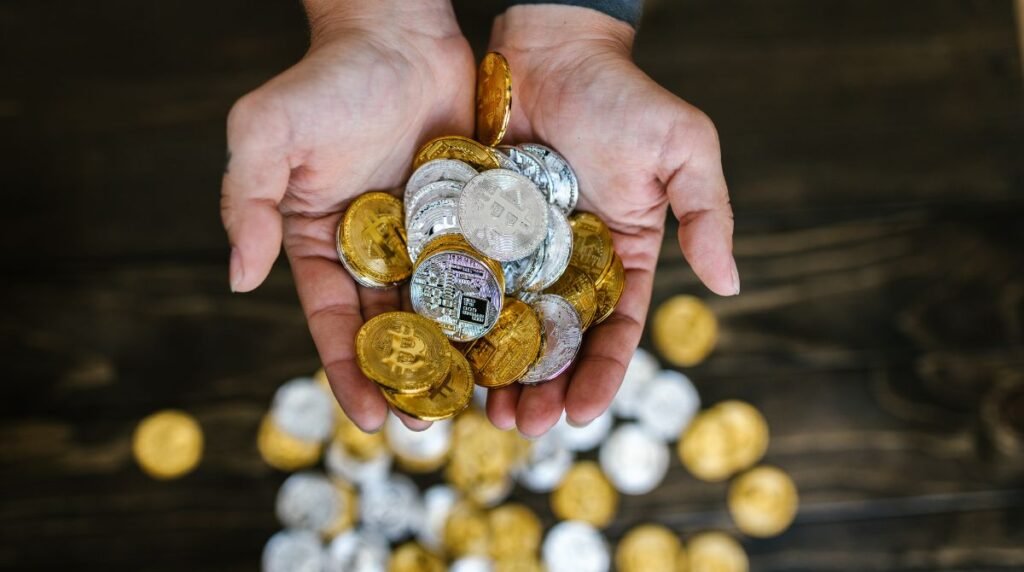Cryptocurrency is a type of digital or virtual currency that uses cryptography for security. Unlike traditional currencies issued by governments, cryptocurrencies operate on technology called blockchain, which ensures transparency, decentralization, and immutability.
Bitcoin, created in 2009 by an unknown person using the pseudonym Satoshi Nakamoto, was the first cryptocurrency and remains the most well-known and widely used.
What is Cryptocurrency?
At its core, cryptocurrency is a digital form of money designed to work as a medium of exchange. It allows for secure and direct transactions between parties, eliminating the need for intermediaries like banks. Cryptocurrencies are typically decentralized, meaning they are not controlled by any central authority, such as a government or financial institution.
How Does Cryptocurrency Work?
Cryptocurrencies operate on blockchain technology, which is a distributed ledger maintained by a network of computers, or nodes. Here’s a simple breakdown of how it works:
- Blockchain: A blockchain is a chain of blocks, where each block contains a list of transactions. When a transaction is made, it is recorded in a block. These blocks are linked together in chronological order, forming a chain.
- Decentralization: Instead of being stored in a single location, the blockchain is distributed across a network of computers. This decentralization ensures that no single entity has control over the entire network, making it more secure and resistant to fraud.
- Cryptography: Cryptocurrencies use cryptographic techniques to secure transactions and control the creation of new units. Public and private keys are used to transfer and receive funds securely.
- Mining: For some cryptocurrencies like Bitcoin, new transactions are verified and added to the blockchain through a process called mining. Miners use powerful computers to solve complex mathematical problems. When a problem is solved, the transaction is added to the blockchain, and the miner is rewarded with new cryptocurrency.
Popular Cryptocurrencies
While Bitcoin is the most famous, there are thousands of other cryptocurrencies, each with its own unique features and uses. Some popular ones include:
- Ethereum (ETH): Known for its smart contracts, which are self-executing contracts with the terms of the agreement directly written into code.
- Ripple (XRP): Designed for fast and low-cost international payments.
- Litecoin (LTC): Created as the “silver to Bitcoin’s gold,” it offers faster transaction times and a different hashing algorithm.
- Cardano (ADA): Focuses on security and sustainability, using a research-driven approach to development.
Uses of Cryptocurrency
Cryptocurrencies have a variety of uses beyond being a digital currency:
- Investment: Many people buy cryptocurrencies as an investment, hoping that their value will increase over time.
- Transactions: Cryptocurrencies can be used to buy goods and services, especially online. Some companies accept Bitcoin and other cryptocurrencies as payment.
- Smart Contracts: Platforms like Ethereum enable the creation of smart contracts, which automatically execute when predefined conditions are met, eliminating the need for intermediaries.
- Decentralized Finance (DeFi): DeFi platforms use cryptocurrencies to offer financial services like lending, borrowing, and trading without traditional banks.
Risks and Considerations
While cryptocurrencies offer many benefits, there are also risks to be aware of:
- Volatility: Cryptocurrency prices can be highly volatile, leading to significant gains or losses in a short period.
- Security: While blockchain technology is secure, individual users can be vulnerable to hacking, phishing, and other scams.
- Regulation: The regulatory environment for cryptocurrencies is still evolving, and future regulations could impact their value and use.
How to Get Free Cryptocurrency
You can get free cryptocurrency through Bitcoin faucets, Ethereum faucets, and other similar services.
These faucets are websites or apps that reward users with small amounts of cryptocurrency for completing simple tasks, such as solving captchas, watching ads, or playing games.
The primary purpose of these faucets is to introduce people to cryptocurrencies by giving them a small, risk-free amount to start with.
While the rewards are typically minimal, they can accumulate over time, allowing users to build their cryptocurrency holdings without any initial investment.



